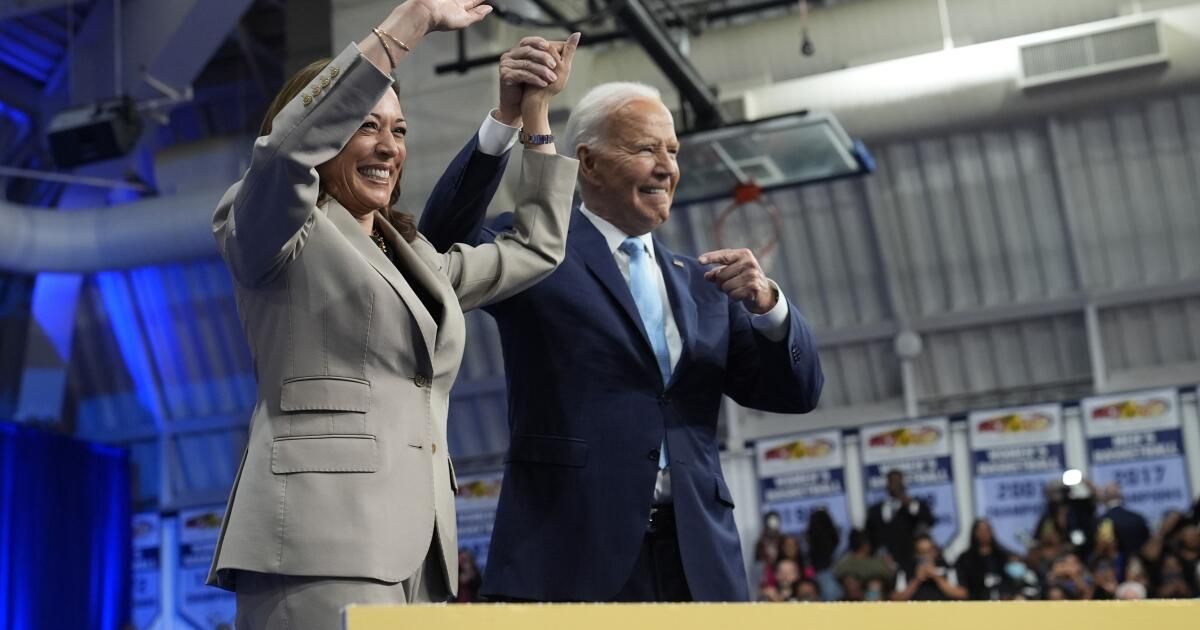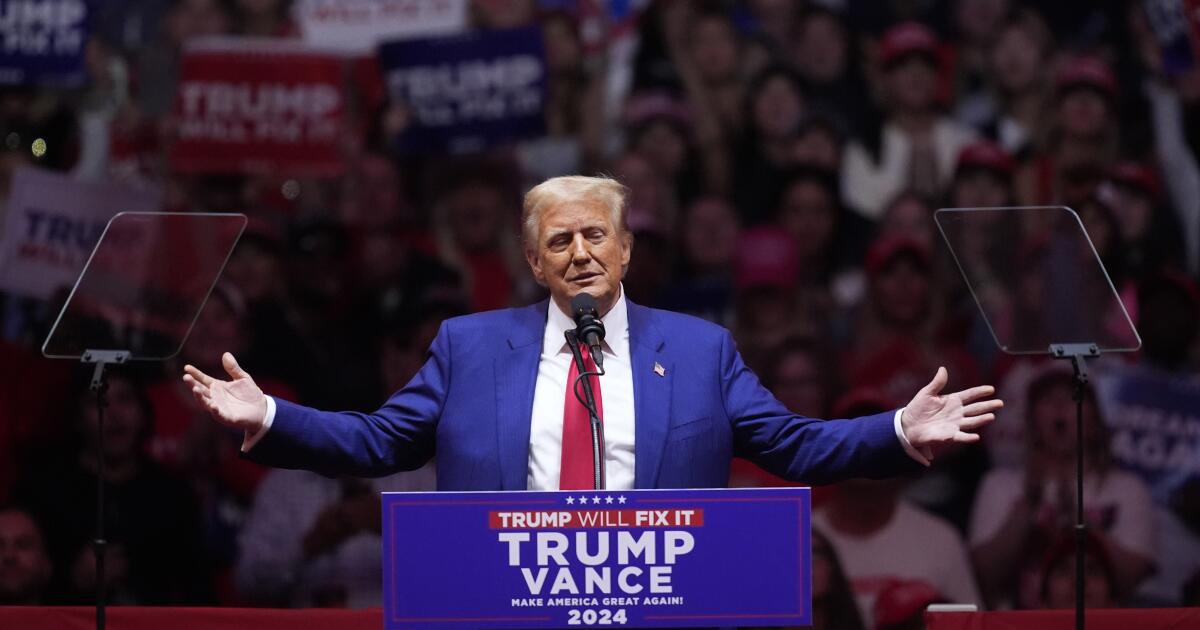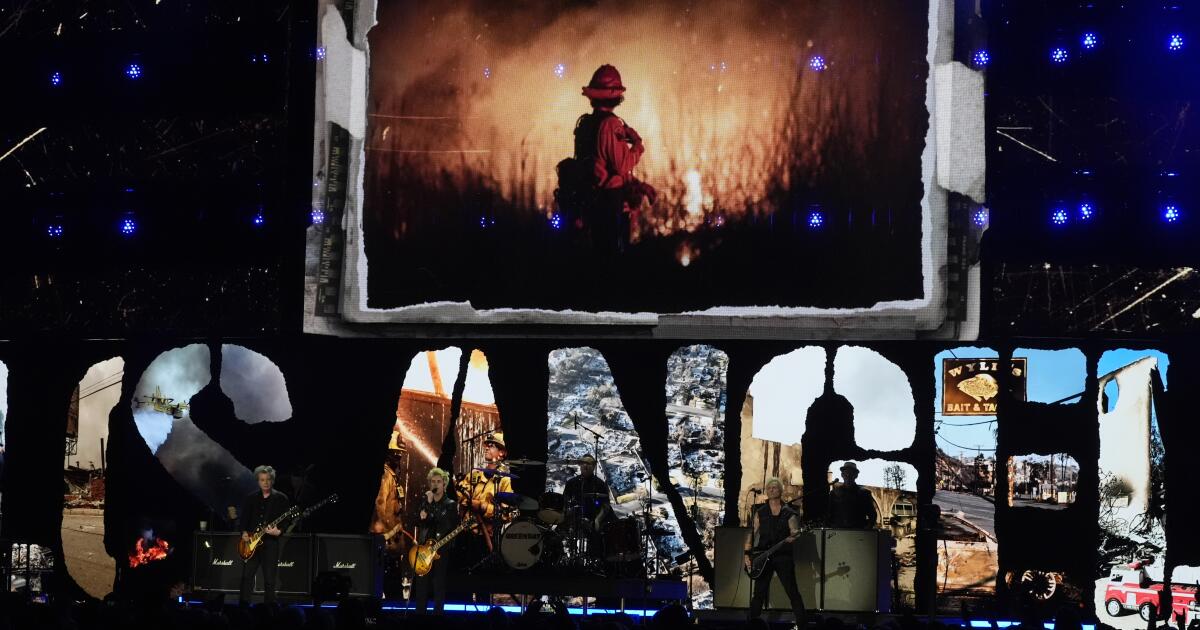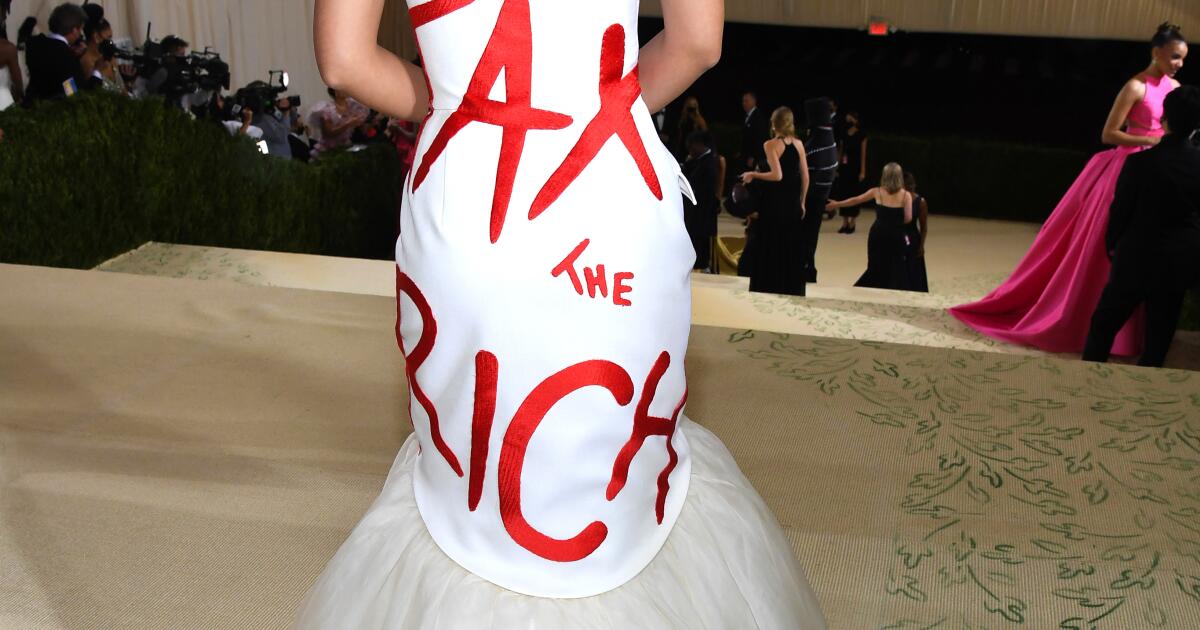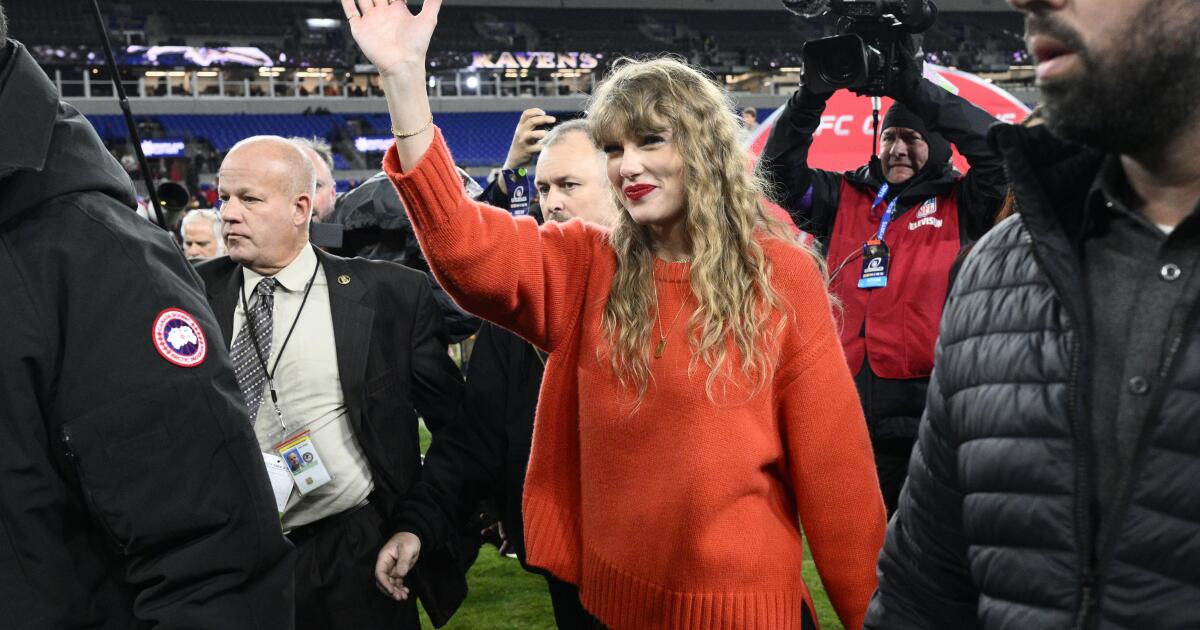To the editor: Columnist Jonah Goldberg argues that calls for “unity” show that we have missed the point of our constitutional system. “Nearly all pundits and public intellectuals lament the lack of unity,” he writes.
I tend to think of unity, in the political sense, as working together within the party and with all parties.
He also doesn't like the way politicians claim they're going to accomplish something on day one, like passing a law. I'm sure Goldberg knows, better than most, that political speeches tend to be hyperbolic.
If Vice President Kamala Harris says she's going to repeal former President Trump's tax cuts on day one, I assume that means she'll get to that and other projects as soon as possible.
I think Goldberg should add a pinch of common sense to his prescription for curing the obsession with unity.
Nate Tucker, Costa Mesa
..
To the editor: I was initially prepared to disagree with Goldberg's column. Appeals to anger, a reliance on sound bites instead of critical thinking, and the proliferation of misinformation have poisoned our politics, and this needs to stop.
To me, unity seemed like a simple and attractive solution… until this column exposed its weaknesses.
The question is: how do we reform our system? Perhaps an overwhelming rejection of MAGA and Trumpism is the first step.
Louis Lipofsky, Beverly Hills
..
To the editor: Goldberg is basically right about the limitations of unity, but (once again) misses a key point: the greater power of compromise.
Hopefully Harris has learned a valuable lesson from President Biden on how to build consensus to advance legislation.
If he addresses the need for compromise to solve problems like the deficit, Social Security and the needs of the “hinterlands,” he will achieve substantial achievement and, potentially, a great presidency.
Scott Wrisley, Hidden

